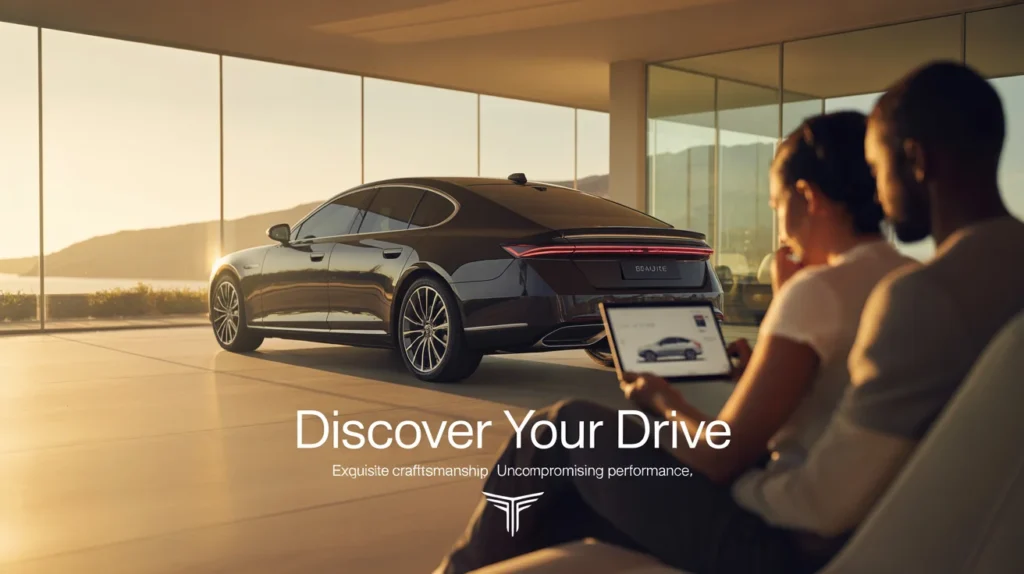How to Choose a Luxury Car: A Complete Guide
How to choose a luxury car goes beyond picking a shiny vehicle with a fancy badge. It’s about finding the perfect blend of design, performance, comfort, and innovation that aligns with your lifestyle, personality, and expectations.
With so many brands, features, and models available, the process can be overwhelming for even the most experienced buyers.
This guide simplifies everything you need to know about how to choose a luxury car. We’ll explain each factor from performance and technology to comfort and resale value so that you can make an informed decision.
Whether this is your first luxury car or an upgrade from your current one, this article will walk you through every Step clearly and easily.
Understand Your Driving Needs First
Before even looking at brands or models, you must be clear on how and where you’ll use the car. Think about your daily routine: will the car be used for short city drives, long highway commutes, or weekend getaways?
This impacts the kind of features and engine size you should prioritize. If comfort is your top priority, you might want a smooth sedan. If performance is your thing, consider a luxury sports car or SUV.
Your lifestyle also matters. Families may need larger vehicles with plenty of space, while single professionals might lean toward sleek coupes. Gas mileage, safety, and cargo space are all important, depending on your usage.
Understanding your unique needs will save you time and narrow down your options to models that truly fit your life.
Research Luxury Car Brands Thoroughly
Each luxury car brand carries its reputation, legacy, and specialty. For instance, Mercedes-Benz is often associated with comfort and cutting-edge technology, while BMW is known for its sporty performance and precision. Brands like Audi focus on all-around performance and sleek design, whereas Lexus prioritizes reliability and value.
It’s essential to research each brand’s key strengths and weaknesses. Read reviews, compare specifications, and speak with current owners if possible. Additionally, consider the long-term service support and dealership experiences, as after-sales service can vary significantly between brands.
Knowing the personality of each brand helps you choose one that aligns with your taste and expectations.
Compare Features That Truly Matter

Luxury cars come with a wide range of features, but not all of them may be essential for you. Start by listing what matters most: is it the leather interior, panoramic sunroof, adaptive cruise control, or top-tier infotainment system? Make a priority list so you don’t get distracted by non-essential add-ons during your visit to the showroom.
Key Features to Evaluate:
- Advanced safety technologies like blind spot monitoring and lane assist
- Interior quality, seating comfort, and space for passengers
- Infotainment systems, connectivity, and touchscreen responsiveness
- Climate control options, especially multi-zone or innovative AC systems
- Adjustable and memory-enabled seating with ventilation or massage options
Evaluate Performance and Engine Options
Luxury cars are often built for performance, but this can vary significantly depending on the model and type. Some models feature turbocharged engines, while others prioritize smoothness and reduced noise. If speed thrills you, opt for models with higher horsepower or performance upgrades.
If you value smooth rides, look into sedans with adaptive suspension systems.
Different Engine Configurations
- Turbocharged 4-cylinder engines for balanced performance and efficiency
- V6 and V8 engines for more power and sportier experiences
- Hybrid and electric powertrains for eco-conscious buyers
- All-wheel drive vs. rear-wheel or front-wheel options, depending on terrain and weather
Understanding what’s under the hood helps ensure you’re not just buying looks, but also the drive quality that suits your preferences.
Set a Budget and Consider Total Ownership Cost
Budgeting is key in choosing a luxury car. It’s not just about the sticker price; you need to consider long-term ownership costs. This includes fuel, insurance, maintenance, and depreciation. Some luxury brands have higher maintenance costs due to the use of premium parts and specialized services.
Leasing can be a more intelligent choice for some buyers, especially if you like changing cars every few years. On the other hand, buying may be better for long-term value. Either way, knowing your financial comfort zone will help you enjoy your purchase without financial stress.
Types of Ownership Costs to Expect
- Routine maintenance and servicing from authorized dealers
- Higher insurance premiums for luxury models
- Annual fuel expenses, especially for high-performance engines
- Cost of extended warranties or service packages
Think About Resale Value and Brand Reliability
Luxury vehicles tend to depreciate quickly, but certain brands retain their value more effectively than others. Lexus, for instance, is known for strong resale due to its long-term reliability. On the other hand, some European brands may have more significant depreciation but offer higher prestige.
Check used-car listings for models you’re interested in to see how they age. Additionally, review long-term ownership records to identify common problems or maintenance issues. This gives you a realistic picture of what to expect in the coming years.
Test Drive Multiple Options Before Deciding
Never buy a luxury car without experiencing it firsthand. Test driving multiple models helps you compare their ride quality, cabin noise levels, braking, and steering responsiveness. Try driving in both city traffic and open highways to get a complete feel.
During the test drive, pay close attention to how intuitive the controls feel. Can you access everything easily? Is the infotainment system smooth or complicated? Are the seats supportive during long drives? These real-time experiences matter more than brochures or specs on paper.
Don’t Ignore the Interior Ambience
Luxury isn’t just about driving, it’s about how you feel inside the car. The cabin materials, layout, lighting, and acoustics all contribute to the luxury experience. Genuine leather, wood, or metal trims, ambient lighting, and even the scent of the interior can make a significant impact.
Spend time sitting in the car even before the test drive. Adjust the seat, explore the dashboard, and check visibility from different angles. This will help you judge whether the car’s design suits your preferences and offers enough comfort.
Conclusion:
Learning how to choose a luxury car is not just about picking the most expensive or flashiest model. It’s about understanding your needs, setting your priorities, and making a well-rounded decision. From daily driving habits to desired features and engine preferences, everything should come together to guide your choice.
Equally important is being realistic about your budget and long-term ownership costs. Conducting thorough research, test-driving different models, and evaluating features critically can transform a stressful purchase into an exciting and rewarding experience.
With thoughtful planning, you can find a luxury car that’s not only stylish and powerful but also a perfect match for your lifestyle.
In the end, luxury means different things to different people. For some, it’s speed and power; for others, it’s comfort and elegance. By following this guide, you’ll be equipped to pick the luxury car that meets your definition of perfection and enjoy every mile behind the wheel.
Frequently Asked Questions:
Q1. How to choose a luxury car?
A: Focus on your budget, brand reputation, features (like comfort, tech, and safety), resale value, and test drive multiple models before deciding.
Q2. Are luxury cars worth the higher price?
Answer: Yes, if you value premium materials, advanced safety, top-tier performance, and brand prestige.
Q3. Should I buy new or certified pre-owned (CPO)?
Answer: CPO models offer luxury with lower prices and warranty protection, making them a smart alternative to new.
Q4. Which brands are the most reliable for luxury cars?
Answer: Lexus, Audi, and Genesis consistently rank high in luxury reliability and owner satisfaction.
Q5. How significant is resale value in a luxury car?
Answer: Very brands like Lexus and Porsche tend to hold value better, reducing long-term ownership costs.


